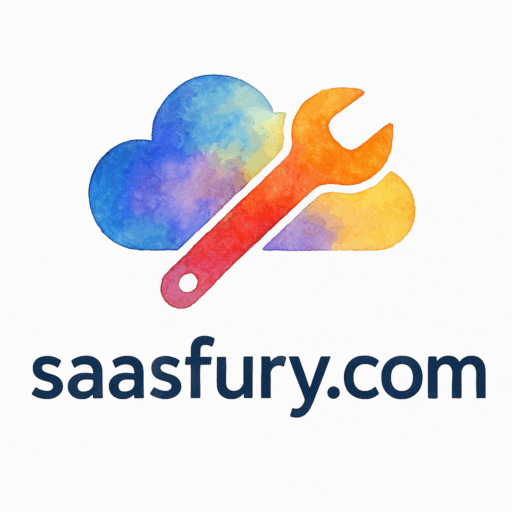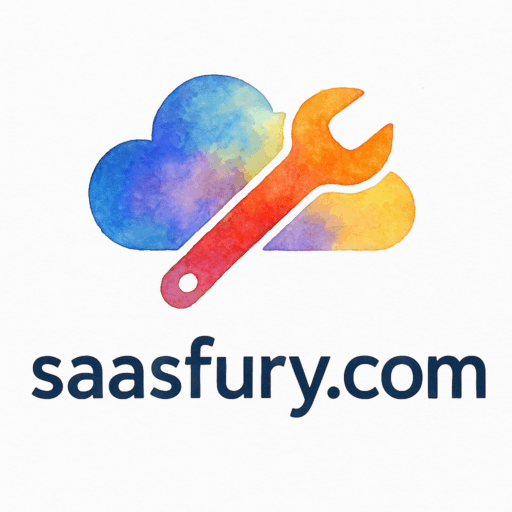Introduction: Why SaaS Tools Matter for Boutique Owners
Running a small boutique isn’t just about curating the perfect styles or displaying trendy pieces—it’s about managing your business efficiently behind the scenes. From inventory tracking to customer engagement, every detail matters. That’s where SaaS tools come in. These cloud-based solutions simplify complicated tasks, free up your time, and help you focus on building an unforgettable shopping experience.
For boutique owners, choosing the right SaaS tool isn’t just a convenience—it’s a growth strategy. According to SaaS tool recommendations, the right platform can make all the difference between staying small or scaling your brand.
Understanding SaaS Tools for Retail Success
What Are SaaS Tools?
SaaS, or Software as a Service, is essentially software you access online through a subscription model. No hefty installations, no costly updates—just log in and get to work. Think of it like a fashion subscription box: you get fresh updates, trendy features, and flexibility without long-term hassle.
Benefits of SaaS Tools for Small Boutiques
- Affordable & Scalable: Perfect for small businesses starting out.
- Cloud-based: Manage your boutique from anywhere.
- Specialized Features: From retail software to marketing tools, you’ll find a solution for every need.
- Efficiency Boost: Automates repetitive tasks, saving time.
Key Challenges Small Boutique Owners Face
Inventory Management Struggles
Manual stock-taking can feel like finding a lost sock in a pile of laundry. SaaS-based retail inventory tools keep everything updated in real time.

Customer Relationship Hurdles
Customers aren’t just buying clothes—they’re buying stories and experiences. Without a proper CRM tool for small business, building loyalty can be tough.
Marketing and Online Presence
Instagram posts and word-of-mouth only go so far. Marketing automation SaaS helps boutiques build consistent engagement online.
5 SaaS Tool Recommendations for Small Boutique Owners
1. Retail & Inventory Management SaaS
Best Features for Boutique Owners
Managing stock manually is stressful. Retail SaaS tools give you barcode scanning, stock alerts, and real-time updates across online and offline channels.
Recommended Tools
- Lightspeed Retail
- Vend
- Square for Retail
These are all excellent examples of how retail e-commerce SaaS can take the guesswork out of inventory management.
2. SaaS for E-commerce & Omnichannel Selling
Why Boutiques Need E-commerce SaaS
Shoppers no longer stick to one channel. They might browse on Instagram, buy online, and pick up in-store. That’s why omnichannel SaaS is a must-have.
Recommended Tools
- Shopify – easy setup for small boutiques.
- BigCommerce – scalable for growing shops.
- WooCommerce – flexible if you already use WordPress.
Boutiques that blend offline charm with online education in e-commerce strategies often see the best growth.
3. SaaS for Marketing Automation & Customer Engagement
Key Marketing Features
Boutiques thrive on connection. With the right creative SaaS marketing tools, you can create loyalty programs, personalized emails, and social media campaigns without the overwhelm.
Recommended Tools
- Klaviyo – tailored email marketing.
- Mailchimp – beginner-friendly.
- HubSpot – an all-in-one marketing + CRM solution.
Pairing these with consulting tools can sharpen your boutique’s marketing strategy even further.
4. SaaS for Scheduling & Appointment Management
Benefits for Boutiques
If you offer styling sessions or private shopping, scheduling SaaS makes the booking process seamless. No more back-and-forth messages.
Recommended Tools
- Acuity Scheduling
- Calendly
- Square Appointments
For boutiques that double as styling studios, integrating scheduling SaaS with retail operations creates a flawless customer journey.
5. SaaS for Accounting & Business Operations
Financial Management Simplified
Keeping finances in order is one of the hardest parts of running a boutique. SaaS tools can automate expense tracking, generate reports, and even handle payroll.
Recommended Tools
- QuickBooks Online
- Xero
- FreshBooks
Pairing financial tools with professional service SaaS ensures smooth day-to-day operations without the headaches.
How to Choose the Right SaaS Tools for Your Boutique
Budget Considerations
Start small. Invest in core tools like inventory and accounting, then scale to advanced SaaS as your boutique grows.
Scalability and Flexibility
Look for SaaS tools that expand with you. For instance, some small business SaaS platforms grow from single-store solutions into multi-location management.
Ease of Use and Training
Your SaaS shouldn’t feel like rocket science. Look for user-friendly dashboards, tutorials, and strong support.
The Future of SaaS in Boutique Retail
AI-Driven Retail Management
AI will soon predict customer preferences and optimize stock, much like healthcare SaaS tools do for patient records.
Personalized Customer Journeys
With SaaS-powered personalization, boutiques can deliver experiences that feel like VIP shopping—tailored, memorable, and loyalty-driven.
Conclusion
Owning a boutique is about passion, creativity, and connection. But let’s be real—without the right systems, the backend can quickly become overwhelming. By adopting SaaS tools for inventory, e-commerce, marketing, scheduling, and accounting, boutique owners can unlock new levels of efficiency and growth.
These five SaaS tool recommendations aren’t just about running your boutique more smoothly—they’re about freeing up your time to do what you love: curating unique styles and connecting with your customers.
FAQs
Q1: What are SaaS tools, and why are they important for boutique owners?
They are subscription-based software solutions that streamline boutique operations—from retail to marketing.
Q2: Can SaaS tools help if I only run a physical boutique?
Yes! Tools like hospitality SaaS prove even offline businesses benefit from digital systems.
Q3: Which SaaS tool is best for boutique inventory management?
Platforms like retail software options such as Lightspeed and Square are excellent.
Q4: Are SaaS tools expensive for small business owners?
Nope! Many start at just $10–$30/month, making them perfect for small businesses.
Q5: Do I need different SaaS tools for in-store and online sales?
Not necessarily—omnichannel SaaS integrates both for seamless management.
Q6: How do SaaS tools improve customer loyalty?
They enable targeted campaigns and loyalty programs through marketing SaaS.
Q7: What’s the future of SaaS in boutiques?
Expect AI-driven forecasting, social commerce integration, and smarter e-commerce SaaS solutions.

